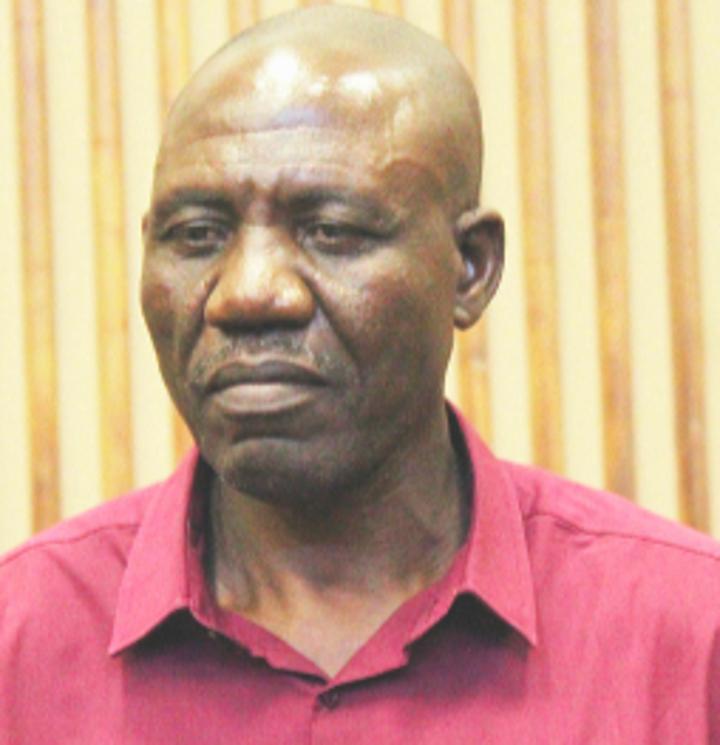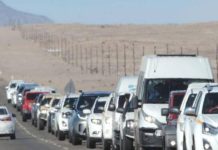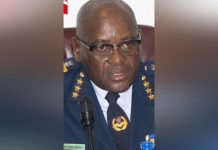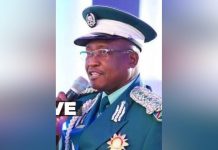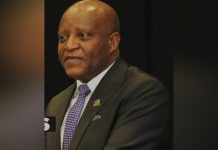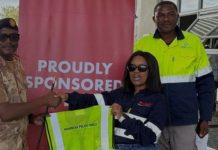Africa-Press – Namibia. ONE of the men charged in the long-running second Caprivi high treason trial told a judge in the Windhoek High Court yesterday he was not a Namibian citizen before the Botswana authorities sent him back to the former Caprivi region, where he was then arrested near the end of 2003.
The first time he applied for a Namibian identity document was in 2012, and he did not apply voluntarily at the time, but because prison rules required him to have an ID card, Progress Munuma (60) told acting judge Petrus Unengu while testifying in his own defence in his retrial on a charge of high treason and nine other counts.
Munuma’s testimony marks the start of the defence case in the retrial that he and seven co-accused have been going through in the High Court. The eight accused are standing trial for a second time on allegations that from September 1998 to December 2003 they had been involved in a plot to overthrow the Namibian government in the then-Caprivi region and to secede the region from Namibia.
They are denying guilt on all charges. The eight men, together with four co-accused, went through a first trial in the High Court between 2005 and 2007. That trial ended with 10 of them being convicted of high treason and sentenced to prison terms of either 30 or 32 years each in August 2007.
The Supreme Court set aside their convictions and sent their case back to the High Court for a retrial in July 2013, after finding that the judge who presided over their first trial should have recused himself from the matter when he was asked to do so following his dismissal of a jurisdiction challenge raised by the accused.
The retrial started before Unengu in June 2014. Munuma related that he was born in the Caprivi region – now the Zambezi region – and that he was employed by the South African Defence Force from 1980 to 1988.
He said in late October 1998 armed police officers and soldiers detained and interrogated him when he went to visit relatives in the region’s Linyanti area. Feeling threatened after the questioning, he decided to flee to Botswana, Munuma recounted. Before he went to Botswana, he also said, he was not politically active and was making a living as a farmer in the Sachona area of Zambezi.
Munuma left the country at the same time that members of the separatist Caprivi Liberation Army and its leader, former National Assembly member and official opposition leader Mishake Muyongo, made an exodus from Namibia to Botswana, where they sought asylum.
According to Munuma, he was given refugee status in Botswana, where he lived at Dukwe Refugee Camp, until he was arrested in November 1999. After that arrest, he said, he was detained until December 2003, when the Botswana authorities returned him to Namibia, where he was arrested and charged with high treason.
He has remained in jail in Namibia since then. Munuma said on 2 August 1999 – when members of the Caprivi Liberation Army staged surprise attacks on government-linked targets at Katima Mulilo – he was at Dukwe.
One of the prosecution witnesses who implicated him as having been involved in the organisation of an armed separatist movement in Zambezi was not known to him before the witness testified during the trial, Munuma said.
He further told the judge he did not go to Zambia and Angola with that witness, Caprivi Liberation Army leader John Samboma, and others to get firearms for the separatist movement, as had been testified during the trial.
Munuma, who is represented by defence lawyer Ilse Agenbach, is due to continue with his testimony today. Deputy prosecutor general Lourens Campher is representing the state.
For More News And Analysis About Namibia Follow Africa-Press

